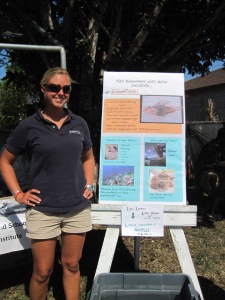This spring, two high school seniors, Louise Shiverick (F’10) and Sam Falkson, came down to Eleuthera to work at the Cape Eleuthera Institute for their senior project. Read about their time at CEI working with the lemon shark program.
[slideshow]
Louise
My name is Louise Shiverick and I am lucky enough to be working at the Cape Eleuthera Institute with the Shark Research and Conservation Program for my Senior Project. At my school, Hathaway Brown (in Shaker Heights, Ohio), the last thing that the seniors do before graduating is a two week senior project. The point is to give us one last opportunity in high school to get involved with something that we find really interesting. People do a variety of things, from community service at soup kitchens to shadowing a doctor at one of the nearby hospitals. While most people stay at home, I decided to do something different and come to CEI.
I was an Island School student in Fall 2010 and was on the Lemon Shark research group Continue reading


